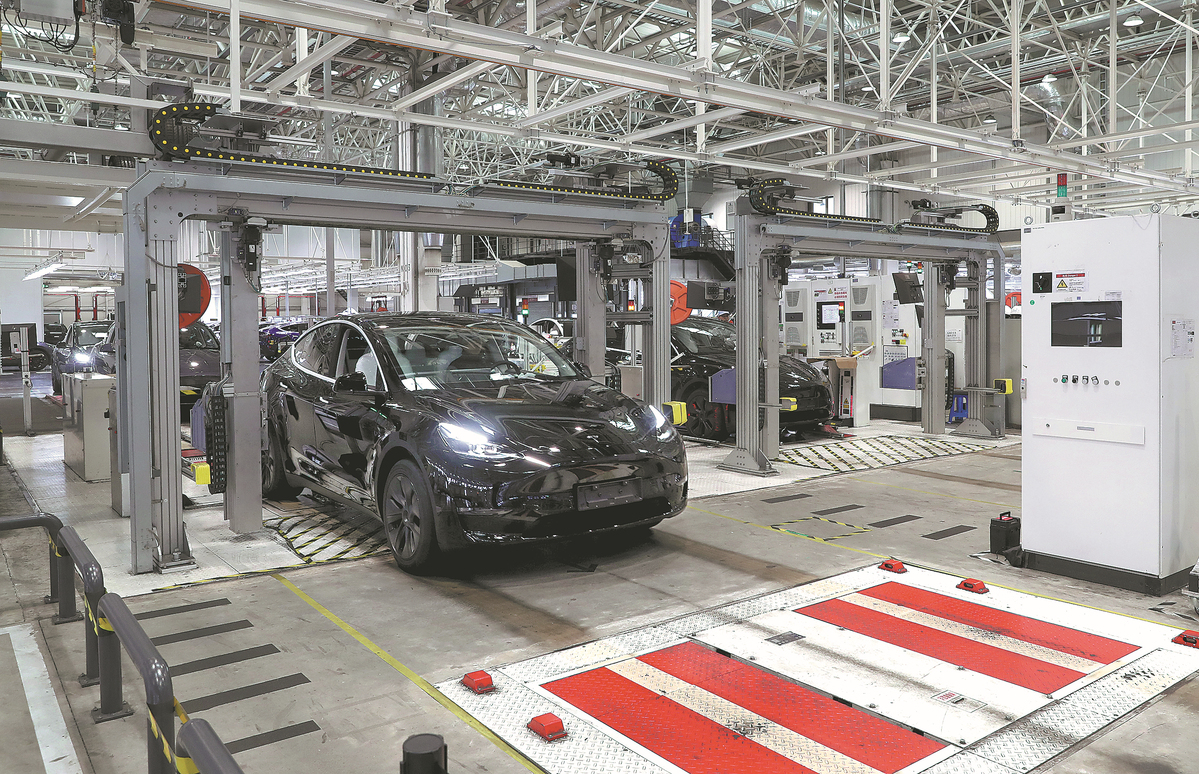'Global status far off for China's carmakers'
Analysts call for caution after BYD beats Tesla to become the world's best-selling EV maker


Tesla's CEO has praised Chinese carmakers' competitive edge, but analysts say they should be sober-minded as there is a long way to go in terms of global presence.
"The Chinese car companies are the most competitive car companies in the world. So, I think they will have significant success outside of China," said Elon Musk on Tesla's earnings call last week.
"Frankly, I think, if there are not trade barriers established, they will pretty much demolish most other companies in the world."
Tesla was dethroned by BYD in the fourth quarter of 2023 as the world's best-selling electric vehicle maker. It came as a result of the growing demand for emission-free mobility in China, which is globally the largest vehicle market.
Tesla delivered a record 484,500 EVs in the last three months of 2023, which was roughly 40,000 less than those sold by BYD. This is the first time that BYD outsold Tesla in terms of battery-only vehicles on a quarterly basis.
For the whole of 2023, Tesla still sold more, standing at 1.81 million units, while BYD sold 1.57 million EVs, up 73 percent year-on-year.
Some other Chinese carmakers have released ambitious goals. Xiaomi unveiled its first model in late 2023, vowing to take on Tesla and Porsche.
Xiaomi CEO Lei Jun expects the company to grow into a top five automaker worldwide in 15 to 20 years.
The early mover advantage, coupled with favorable government policies and growing charging facilities, has seen China become the world's largest new energy vehicle market and one of the most important sources of innovation in the sector.
Xu Haidong, deputy chief engineer of the China Association of Automobile Manufacturers, said: "The fast growth of the new energy vehicle sector and the rise of local Chinese marques are helping boost the automotive sector's overall development."
Chinese EV makers, adept at keeping costs in check with a stable supply chain, are moving fast. Many are now working on rapidly expanding their foreign footprint, with Southeast Asia and Europe as two largest destinations for new energy vehicles.
In 2023, their exports exceeded 1.2 million units, up 77 percent year-on-year, according to the China Association of Automobile Manufacturers.
However, global carmakers have been coming up with their own solutions. Musk confirmed last week that Tesla expects to start production of its next-generation EV in the second half of 2025.
Nissan is planning to launch a slew of new energy vehicles in China and Volkswagen is partnering with local Chinese startups to sharpen its competitive edge.
Meanwhile, brand awareness of Chinese car companies in overseas markets remains low.
In the United States, they are little known, so they have a long way to go to win US market share, said Spencer Imel, a partner at consumer insights firm Langston.
"They enjoy high demand in China with innovation such as in-car technology and battery swapping," Imel said. "That, we believe, will be an important ingredient and a differentiator in their future growth overseas."
Also, analysts worry that Musk's comments may see politicians consider measures to curb Chinese carmakers' business in overseas markets, especially in countries that have their own automotive industries.
US President Joe Biden has said China was determined to dominate the EV market and that he "won't let that happen".
Donald Trump, who is the front-runner for the Republican nomination for president this year, has signaled that he would double down on stronger tariffs if elected. He called for a universal 10 percent tariff on all imports into the US and revoking China's most-favored-nation trading status.
Europe has also taken a protectionist stance toward Chinese EV makers. In 2023, the European Commission launched an investigation into whether to impose punitive tariffs to protect EU producers against more affordable Chinese EV imports it says are benefiting from State subsidies.
Reuters contributed to the story.




































